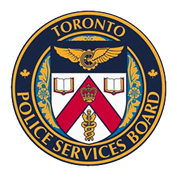The Toronto Police Association is using tele-townhalls to poll residents and mobilize support to fight the city’s plan to reduce the $1 billion-plus police budget through downsizing and restructuring.
The union is inviting tens of thousands of Torontonians to dial into a live panel discussion about “public safety” that focuses on a policing task force’s recommendation to cut spending by $100 million over three years.
On Monday night, listeners were told repeatedly that the number of uniform officers will shrink from 5,650 in 2010 to 5,235 positions this year to about 4,800 by 2019.
During the one-hour session, association president Mike McCormack, a B.C. criminologist and two retired Toronto police officers presented a grim forecast of what could happen with fewer uniform officers on the street.
“These kind of cuts impact crime, they impact community safety and these impact our officers. They can lead to lower response times, less success in reducing and preventing crime and low morale among our officers,” McCormack said in his preamble.
Toronto police spokeswoman Meaghan Gray said the task force is creating a police service that will be where the public needs it most. “Through attrition and a moratorium on hiring, efficiencies will be found to sustain this modernization process. No cuts are being made.”
Residents participating in the event Monday evening were also asked several questions, including whether they would contact their councillor to “tell how you feel about police cuts.” They were instructed to press a number on the phone.
Between 20,000 and 30,000 people have participated in three of the nine tele-townhalls planned for this week, McCormack said Tuesday. The association has hired top political strategist Don Guy to quarterback the public relations campaign.
The association’s tactics did not sit well with Jeremy Tompkins, an east-end resident who fired off angry emails to McCormack, Mayor John Tory, the Star and two city councillors.
He was upset that an automated call inviting him appeared to link fewer officers to the fact “homicides are up by 30 per cent,” without any context.
“I found this experience deeply offensive and problematic,” Tompkins wrote in his email. “Delivering information this way is scaremongering, plain and simple.”
McCormack said the homicide figure was a year-to-year comparison. There have been 63 homicides this year compared to 49 in 2015. Shootings are also up this year. Overall, crime rates have fallen steeply over the last 40 years.
He also denied the association — which represents about 8,000 uniform and civilian members — is using fear to marshal support. “We just think that the public need to be involved in the future of policing.”
Polling expert Barry Kay, a professor at Wilfrid Laurier University, questioned the effectiveness of the tele-townhall technique, which he says is not a good representation of public opinion.
“It’s a representation of people who feel strongly enough about the issue to invest an hour or whatever it is in participating in this event.”
“But clearly the police union has an agenda, and they’re trying to use whatever leverage they can, including trying to create the impression that public opinion is concerned about it.”
Last year, the budget for the country’s biggest and most expensive municipal police force pushed past $1 billion for the first time amid a national debate over the soaring cost of emergency services.
The Association of Municipalities of Ontario calculated that police officers and firefighters received $485 million more in pay hikes than other municipal workers between 2010 and 2014.
“A wall has been hit,” AMO said in 2015 report.
In Toronto, Mayor John Tory, a member of the police board, launched the so-called Transformational Task Force, co-chaired by Chief Mark Saunders and Andy Pringle, chair of the civilian oversight body.
The task force has said its goal is to “revitalize and modernize” the Toronto Police Service by resetting priorities, improving officer deployment, investing in technology and shrinking the footprint by closing some divisions, a politically sensitive issue for some city councillors.
Officers, most earning more than $100,000 a year, will focus on responding to violence and crime, rather than “low-risk” non-emergency situations, the task force says.


